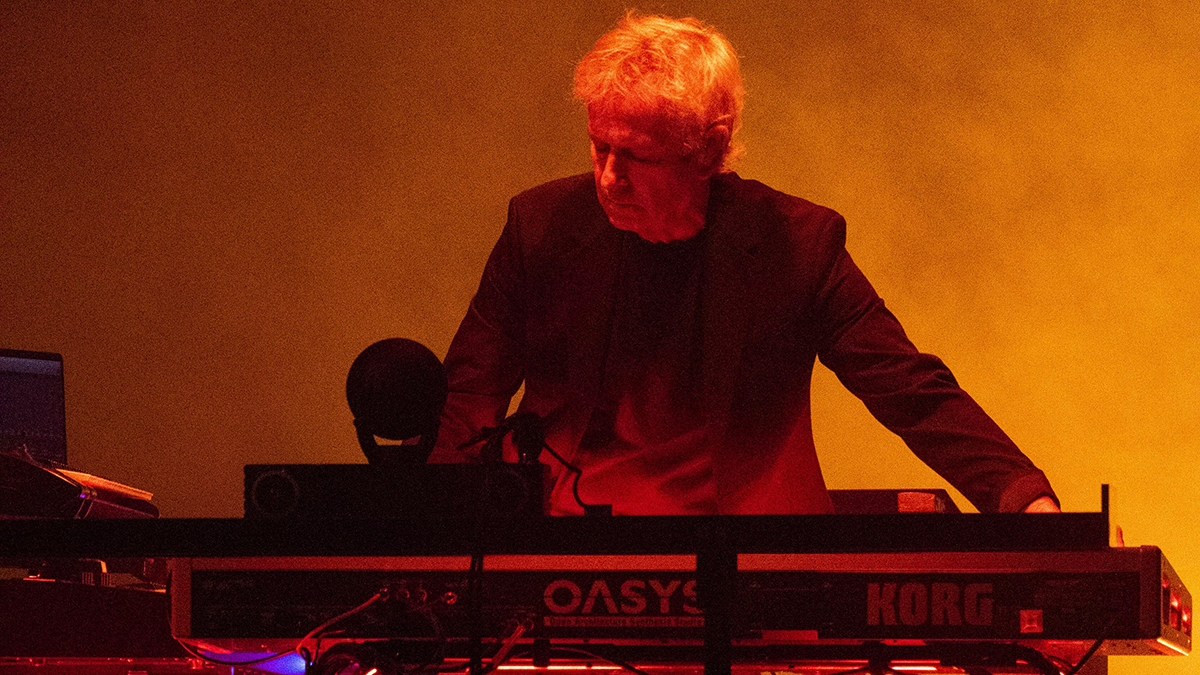Tony Banks on why he would have “screwed up” In The Air Tonight if Phil Collins had given it to Genesis
“I bet I would’ve said, ‘Phil, what are you doing, you can’t use just three chords in a song”

Genesis keyboard player Tony Banks has been reminiscing on the band’s back catalogue, discussing his playing style, soloing ability and songwriting craft.
In an interview conducted with Vulture to mark the launch of BBC Broadcasts, a new 5-CD, Banks-curated boxset that features Genesis live recordings that were made for the corporation between 1970 and 1998, the keyboard maestro began by confirming that this really is the end.
“I don’t think there’s anything else left. The well is dry,” Banks confirms. “We can’t tour any more because of Phil’s state, so that’s the end of that.”
We can’t tour any more because of Phil’s state, so that’s the end of that.
Despite this sense of finality, Banks seems happy to discuss Genesis’ back catalogue and the part he played in creating it. What’s more, he suggests that, in songwriting terms, he hasn’t always been given quite the level of credit he deserves..
“In the early days, everyone thought it was always Peter [Gabriel] and then by the time we got to the ’80s, it was always Phil [Collins]. I never liked that,” he explains. “There’s no Genesis song that would’ve sounded anything like it did if I hadn’t been around,” Banks says later. “If you don’t like Genesis, I’m what you don’t like.”
Discussing his writing contributions in more detail, Banks recalls that “I always wanted a weird chord here and there, which sometimes was my downfall.” Indeed, elsewhere in the interview he suggests that, had Genesis recorded In The Air Tonight, a song he wishes Phil Collins had given to the band, this exact situation may have occurred.
“If Genesis had done it, I’d have probably screwed it up,” Banks admits. “I bet I would’ve added another chord or tried to do something with it and taken it somewhere else. I bet I would’ve said, ‘Phil, what are you doing, you can’t use just three chords in a song.”
Get the MusicRadar Newsletter
Want all the hottest music and gear news, reviews, deals, features and more, direct to your inbox? Sign up here.
On why he considers In the Air Tonight to be the finest of Phil Collins’ solo songs, Banks says: “In a very simplified form, it has an essence of something that Genesis did well, which was a strong and moody atmosphere. That’s my favourite of his songs and always has been. It’s a great piece of music with the greatest drum riff of all time.”
Asked to name ‘the nerdiest song for keyboardists’ in the Genesis canon, Banks chooses Robbery, Assault and Battery, from 1976 album A Trick of the Tail, which he says contains “the most complex solo I’ve ever done.”
“It was written on a drum riff that Phil had come up with and I thought, ‘Well, this is a challenge,’ Banks reveals. “I did a certain amount of playing on top of it to see what would happen and then I decided I’d think about breaking up the thing into 13/8. That was fun to do but it’s technical. I wouldn’t want to play that one again, I have to say, so that’s not in the repertoire.”
Reacting to the suggestion that his solos often go on too long, Banks offers the following justification: “My solos have always been instrumental passages. They’re like vocals with no vocals, so you’re trying to build up a certain lot of time.”
Later, Banks adds that “I’ve often tried to chop things down a little bit, but I went on as long as I felt the bit required. Sometimes it’s as long as the others would let me.”
Despite being recognised as one of the keyboard greats, Banks remains humble about his soloing abilities, and says that he never saw himself as a virtuoso.
“I didn’t do a single solo prior to the album Trespass. I didn’t feel comfortable until then,” he confesses. “On Trespass we had the song ‘Stagnation’ - Mike [Rutherford] started to play two chords and I found I had something to put on top of them. It opened a door for me. I didn’t feel I was a solo player at all. I was very much a chord and accompanying man, but it opened up the whole world for me in a way.”
Check out the full interview on the Vulture website.

I’m the Deputy Editor of MusicRadar, having worked on the site since its launch in 2007. I previously spent eight years working on our sister magazine, Computer Music. I’ve been playing the piano, gigging in bands and failing to finish tracks at home for more than 30 years, 24 of which I’ve also spent writing about music and the ever-changing technology used to make it.









